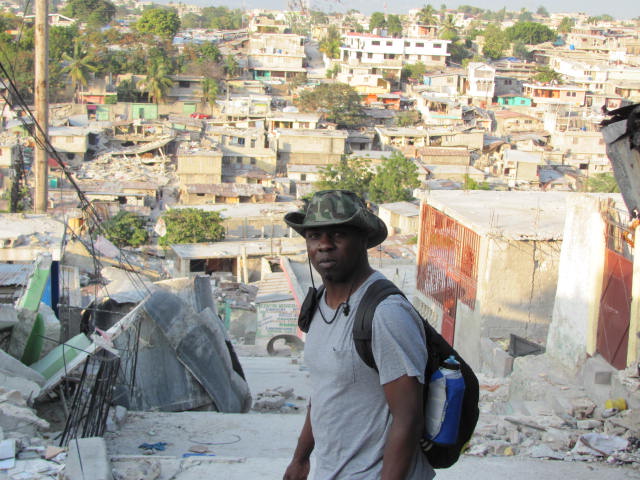Teach Girls Media Literacy and Sexual Health Through Filmmaking
If you've been on the interweb at anypoint in the last month you have probably been asked by someone (or lots of someones) to support a project or idea in the Pepsi Refresh Everything Contest. I've seen ideas I thought were good and ideas I thought were not-so-good, but I just learned of one that is blog-worthy. I think I have little to add to what Monely Soltani and her team have written. I've included that below, but the bottom line is, they are in 16th place right now and rising. They need to get to 10th or better to get funding, so if you want to empower young women to educate themselves and their peers about reproductive health, give it a vote:
imMEDIAte Justice is a summer program that empowers young women from LA to share their experience of reproductive justice through film. With film mentors, young women write & direct films that offer a fresh take on sexual health education.
imMEDIAte Justice trains youth in media literacy and reproductive health with a gender-conscious lens. Professional filmmakers provide the mentorship, tools, & distribution teens need to share their vision with the world.
The focus for summer 2010 is to create positive sexuality education films by LGBTQ youth. We envision sexual education as an inclusive, exploratory, youth-driven process that utilizes new media as a tool to share and safely access information. Our online community, CALIBODYPOLITIX, keeps young women informed about reproductive health and justice in California with the largest network of national and local reproductive health resources for youth.
The program and retreats foster positive self-image, supportive female alliances and media literacy skills, as participants graduate through a two-tier leadership development program that increases their influence as filmmakers and leaders of the next generation of women.
A 2.0 Modest Proposal for U.S. Urban Cities
Over the past few months I've been perusing Craigslist for real estate properties in NYC and New Jersey partly because I like to window shop in virtual space, and partly because I'm nearing that stage in my life of wanting to own a piece of the American pie. While scanning the classifieds I came across tons of new housing development projects in areas like Newark, New Jersey, for instance. Home developers are offering to pay closing cost with $8,000 tax incentives, 10-year warranties, 5-year tax abatement, and even 42" big screen TVs to lure new buyers. I couldn't help but think, "hell, I need to get in where I fit in!" Though, the techy-nerdy-community-activist in me wondered why these same housing developers weren't offering computers or laptops along with Energy Star appliances or, in the very least, include 1-year's worth of free broadband Internet connection service as part of an incentives package.
Surely, families in urban areas would benefit more from having a new computer and high-speed Internet access (with quality bandwidth space) in their homes than from having a 42" big screen TV mounted on the wall.
But apparently, it's not that simple.
While the federal government has set aside funds to support broadband infrastructure projects in rural areas, there are no mandates ordering that these funds be specifically allocated to lower income communities through urban renewal projects or by way of public housing initiatives. So as long as the federal government doesn't mandate or provide subsidies for broadband Internet, then chances are local urban governments won't set aside extra funds for these initiatives in their annual budgets.
New research from The Joint Center for Political and Economic Studies indicates that broadband use is highest among those with greater levels of income or education. Yet, despite this, and older studies, federal and local governments appear apathetic toward ensuring that across-the-board broadband Internet access is provided within lower income residential communities.
Granted, issues concerning how local governments and business provide services to communities, through either ISP (Internet Service Provider) or subscriber, indeed matter. Who will fit the bill if our federal government won't mandate or subsidize city governments and private companies to offer these services and infrastructure?
If what is currently taking place in the UK with the Digital Economy Bill is any indication of what might happen in the US, that is, governments not exempting universities, libraries, and small businesses to provide open Wi-Fi services (h/t @blogdiva)--then yeah, we're screwed.
Or maybe not.
As the Founder and President of Media Make Change, it is my responsibility to incite discussion and offer ideas that address the disproportionate relationship between marginalized communities and broadband Internet access, including digital literacy--while, at the same time, agitate community leaders and politicians to act in the very best interest of these communities.
So with that, I offer the following 2.0 Modest Proposal, with the promise that infants won't be offered up as food.
- Since "age, family income, and educational attainment are three major barriers that critically stifle minority Internet use and home broadband adoption," I propose that urban city governments and housing developers include at least one computer or laptop per household with at least 1-year free broadband service as part of their incentive packages to attract new, young, and lower-income (including fixed-income) home owners.
- If condo developers in Los Angeles can provide free Wi-Fi access to its buyers, then so can developers (with large amounts of money, supplies, and credit set aside for each project) in urban neighborhoods like Cleveland, Detroit, D.C., and Newark. (H/T @sjean70).
- With Teachers Villages springing up in cities like Newark, NJ, why not build "Internet Villages" made up of small Internet Cafes and Learning Centers that directly provide residents with Internet services right in their very own backwards? Organizations like Media Make Change can work with local governments and housing developers to host free digital media and web training workshops that encourage using technology as means for civic engagement and social entrepreneurship.
- Since Google plans "to build and test ultra high-speed broadband networks in a small number of trial locations across the United States . . . [and] offer service at a competitive price to at least 50,000 and potentially up to 500,000 people," then I propose that these same urban city governments and housing developers take Google up on its offer and build Internet Cafes within a one-mile radius of these residential areas. So the question of who will fit the bill if our federal government won't mandate or subsidize public and private companies to offer these services? is answered. In fact, Google can, if you let 'em. (H/T @AUFBRAND).
Seems easy enough. However, the reality is if we had the full support of the federal government to encourage mandate implement these initiatives, life would be a helluva lot easier for advocates, businesses, and community members alike.
So for now, I suggest contacting the following government officials and urge them to consider a 2.0 Modest Proposal, which encourages implementing projects that address broadband Internet access and digital literacy disparities within low-income communities, communities of color, communities with dis/abilities, and senior communities.
Feel free to tell them that I sent you.
The Feds:
Senate Committee on Banking, Housing, and Urban Affairs
House Committee on Science and Technology
The Congressional Black Caucus
Mayor Offices in Urban Cities:
The list goes on so please feel free to add your cities and thoughts below.
In solidarity,
Tara
**UPDATE: Looks like someone has already been working on bringing broadband Internet into low income communities. Check out Rey Ramsey, the Founder and Chief Executive Officer of One Economy Corporation.
Email: tara (at) mediamakechange (dot) org
Media Make Change on Twitter.
CRUSH IT: This week in social media
A quick digest of the week's social media news with a side of fun? You're welcome.
A quick digest of the week's social media news with a side of fun? You're welcome. Introducing CRUSH, the weekly web-show that takes the news on the social media newsladder and crushes it down to reveal the gems.
In this weeks' edition, we discuss the coincidence of Google releasing Buzz at about the same time they struck a deal with the NSA to share info. No relationship - just like Glenn Beck getting a show on Fox the day before Obama was inaugurated.
Facebook, meanwhile made changes to its privacy settings allowing users more control of what info is shared. That won't help people who choose to share their info though. With the growth of location sharing, there is a new website that points out a nagging issue with letting people know where you are all the time.
On the political side of thigs, this past week marked the one year anniversary of the signing of the American Recovery and Reinvestment Act. Organizing for America released this video to mark the occasion, and the House Committee on Education and Labor realeased a great video as well. This is not the first time the Ed and Labor committee has turned to creative webvideos to spread a message, and we hope it will not be the last.
Sarah Palin was asked what she thought the biggest threat to America is, and when her supporters shouted 'Obama' she felt the need to clarify that they had said it, not she. She didn't correct them though. If Mrs. Palin cared about 'those little facty things' she and her supporters might want to thumb through the Quadrennial Defense Review, which catalougues the various security threats to the nation as determined by, well, the people who spend their careers assessing threats to our nation.
Need a job?
Finally, this is from Ben Whitehair on Facebook, and it is hilarious:
5 steps to an AWESOME day: Step 1: Go to google maps... www.google.com/maps Step 2: Search for 39 Rugdeveien, Bergen, Hordaland, Norge Step 3: Zoom in until you get to street view Step 4: Look to the left of the truck and see two men in scooba gear Step 5: Click to make the truck go down the road and watch the men chase the truck....
Remember to post to the Social Media Newsladder, and subscribe to CRUSH on Youtube here.
Leaping the Gap: Addressing Independence in Underprivileged Communities
 It's amazing to me that in this day and age, very few of us have addressed the issue of independent ownership on the web. With the advent of Media Make Change, and its like-minded allies, we have a venue by which to address the inequities that persist in an increasingly global and digital world. Some of the first things I thought of when it came to addressing "ownership" came from Malcolm X, community organizer. While he's most popular for his radical stances and politics, he's also well-known for his advocacy for community ownership. His idea of ownership stems from understanding that the minute a community invests in their own financial capital, the more they'll invest in their own human capital.
It's amazing to me that in this day and age, very few of us have addressed the issue of independent ownership on the web. With the advent of Media Make Change, and its like-minded allies, we have a venue by which to address the inequities that persist in an increasingly global and digital world. Some of the first things I thought of when it came to addressing "ownership" came from Malcolm X, community organizer. While he's most popular for his radical stances and politics, he's also well-known for his advocacy for community ownership. His idea of ownership stems from understanding that the minute a community invests in their own financial capital, the more they'll invest in their own human capital.
The same applies to the web.
While the percentage of homes with Internet access grows yearly, there's around a 20% difference between percentage of Blacks and Latinos home access and Whites and Asians, so the digital divide persists. Even amongst those of us who have Internet access, regardless of background, we still rely heavily on free services such as Blogspot and Livejournal to host our thoughts, Facebook and Ning to house our networks, and Twitter and (sadly) MySpace for promotions. While many of the reasons why we stick to the free services are purely economical, a few of us with the capita don't invest simply because we would rather outsource our personal information.
And that's where the future lies.
In my case, I relied heavily on free services to host everything I did. I was an early adapter to Facebook, Xanga, Twitter, MySpace, and every other larger scale social network service there was. Then, as my interests expanded, I began to see the limitations of these spaces. I started to see friends in similar fields get their memberships revoked or their material dissolved. Social networks began to change their terms of service to de-privatize personal usage, and some services even began to arbitrarily block certain sites that others deemed offensive, even when others of its like never got any warnings.
Thus, with the help of a few friends, I got my own .com.
Admittedly, this is not a new idea for many of us web savants. Multiplatinum musicians and businessmen advertised this idea in the early 90s. Yet, how to attain this status has escaped those who didn't have access early on. Even I had my fears about jumping into this web on my own.
Still, the cost of freedom is worth every penny. In my journey, these three points helped develop my own presence on this vast Internet:
- I have my own name and extension under which anyone can reach me.
- I have contracted independent hosting (note: the difference here is that the hosting services are beholden to you when you're paying, especially if you know what you're supposed to get)
- I use the free services as a means of networking with those who use the services.
Notice that the relationship here is different. Once you've controlled your own space on the Web, you can now interact on those sites without being beholden to them. In a way, they need you because it's your content that engages your network, particularly when you build a sizable network of your own.
Media Make Change is part of that vision. Building and teaching to a curriculum that serves the people who need this sort of information the most may do well for our prospects in decades to come. Until then, let's work towards our independence, one .com at a time.
How else can we build as a community on the Internet?
Jose Vilson, who wrote a synopsis of this back at his site ...
CCC & Evens Jean Help Build A New Haiti
The following is an account from Evens Jean, a social worker and missionary, and Pastor Tom Pokorni of the Community Christian Church (CCC). Evens Jean recently visited his homeland Haiti to provide relief support along with colleagues Pastor Eddy Gervais of CCC, Pastor Tom Pokorni, Founder of Agape Force - Miami, and Mr. Michael Nozile, Executive Director of Gang Alternative, a ministry of CCC. Jean and Pokorni shares their journey and photos with Media Make Change in hopes of raising awareness about the devastation in Haiti. With this account, they provides us with another perspective not too much highlighted within the mainstream media; one based solely on hope, love, and inspiration.

Many thanks for your prayers during my trip to Haiti! It was a long, emotionally draining week, but now I’m safely in back Miami.
We flew into Santo Domingo last Saturday and endured a bumpy, 8-hour bus ride to Port-au-Prince. What we saw there left us drained and sobered. The pictures on TV hadn’t prepared us for the squalor and poverty we encountered.
Hundreds of thousands of families have lost everything. Block after block, buildings are flattened, like the Ministry of Transportation and Communication government building. Over a million people are now living in tents, which are often little more than sheets stretched over sticks. I shutter to think of what will happen when the rainy season begins in a few months.
During the week we saw almost no food distribution by any agencies on the ground. But we were able to give more than $9,000 in cash directly to victims of the earthquake, and distribute medical supplies. I was constantly amazed at the resiliency of the Haitian people. I don’t know how they’re able to pick up the few pieces left of their lives and continue to go on, but they are. They will.
In truth, things are so bad that if I didn’t know God I would say there is no hope for Haiti. Every government building is crumbled, and millions of people have no jobs, no hope for jobs, no visible assistance, no working government, and no food – nothing.
But I have faith in God, and it is because of this faith that makes me want to do more for Haiti. I am praying for God’s direction so that I can be as effective as possible in helping rebuild Haiti. I think that with my background in social work, education, and missions, I am uniquely qualified to help shape a new Haiti in some small way. I pray that God will open the right door(s), and covet the prayers from others around the world.
As Haiti slips out of the news headlines, I humbly ask that you keep our brothers and sisters in your thoughts and prayers. We've got a long way to go to rebuild lives and restore land, but I believe when all is said and done, the world will know a new and better Haiti.
If you would like more information about donating to Haiti, please visit www.cccmiami.org and click on the link "Donation For Haiti." Thank you very much for your assistance. May God continue to bless you and Media Make Change.
Evens Jean was born and raised in Les Cayes, Haiti, which is situated southwest of the capital city, Port-au-Prince. In 1996, at the age of thirteen, he moved to Miami with his family. After college, Jean worked as a Case Worker for two years mostly serving a large community of Haitians in Miami. He now works as a Youth Development Specialist & Life Coach for HANDY (Helping Abused Neglected Disadvantaged Youth) of Broward County. Jean is a member of the Community Christian Church and regularly travels with the church to Haiti, where he and others provide support and relief for children and families in surrounding areas.
Evens Jean holds a Bachelor of Science in Psychology from Florida State University.
If you or someone else would like to share your story, or find out more ways to get involved with relief efforts, please visit Project Haiti Speaks.






